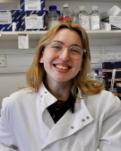The Fletcher Group
Current research
We are a new team with diverse expertise in virology, chemical biology, biochemistry and molecular biology. We value diverse perspectives and experiences in science.
Viruses (and some bacteria and parasites) ply their trade by entering our cells to gain access to a resource-rich environment packed with the building blocks needed to copy and spread. In response, our cells produce an array of proteins that detect incoming pathogens. These proteins sound an alarm system that has been fine-tuned through hundreds of thousands of years of evolution to suppress pathogen replication. Our group studies some of these proteins that sit at the host-pathogen interface. We ask: Which proteins are tasked with detecting pathogens inside our cells? Which features of the pathogen, or infection more generally, are these proteins trained to detect? What do these proteins do to the pathogen? Can we manipulate the behaviour of these proteins to affect pathogen replication?
We take an integrated biochemical, molecular biology and infection biology approach to study these host defence enzymes. We employ a variety of viral and bacterial infection models – using diverse pathogens helps us to illuminate different aspects of this immune system.
A central focus of the lab is a group of enzymes called ubiquitin ligases (or E3s, for short). E3s transfer a small protein called ubiquitin on to other molecules, a bit like a sticker gun labels items with a price tag. Via the advent of new technologies and mindsets, it has come to light that not just proteins are labelled with ubiquitin, but lipids (fats), carbohydrates (sugars) and nucleotides can also become ubiquitin-modified. Protein ubiquitination has been understood for decades to have profound influence on host cell biology, but the consequences of non-protein ubiquitination is largely unknown, making this a very exciting time to be making new discoveries.
Our team experiments at the cutting edge of ubiquitin research with general aims to:
1) uncover novel E3 activities regulated by pathogen infection;
2) dissect the biochemistry and biology of these enzymes to understand how their behaviour is related to viral replication;
3) devise ways of exploiting these enzymes as research tools or therapeutic targets.
By understanding how antiviral E3s work, we aim to exploit their activity in new kinds of antimicrobial therapy.
We collaborate closely with the Boutell, Carter and Castello groups at the CVR, expanding the kind of research questions we can ask.
Research group members
|
Adam Fletcher |
Arda Balci |
Eilidh Rivers |
Emma Davies |
|
Hollie Jackson-Ireland |
Hanna Sowar |
Internal Collaborators:
- Dr Alfredo Castello
- Dr Sam Wilson
- Dr Chris Boutell
- Dr Ben Brennan
- Prof Massimo Palmarini
External Collaborators:
- Prof Greg Towers (University College London)
- Dr Leo James (MRC-LMB)
- Prof Satpal Virdee (MRC-PPU, University of Dundee)
- Dr Eleanor Gaunt (The Roslin Institute, University of Edinburgh)
Grants:
- UKRI Future Leaders Fellowship (2021-2025)







